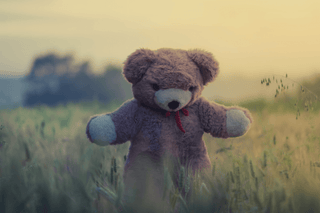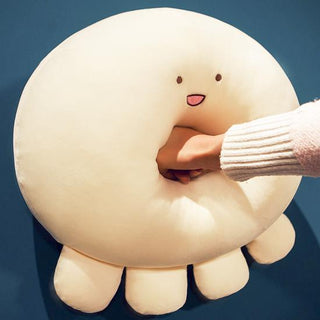As a dedicated Plush Toy Experts, we have witnessed firsthand the profound impact that these soft and adorable companions have on the cognitive, emotional, and social development of young children. Plushies are not just toys; they are essential tools that play a pivotal role in shaping a child's early years. In this blog, we'll explore the positive effects of plush toys on children's development, grounded in research and expert insights, and highlight their significance in early education and play.
Cognitive Development:
-
Stimulating Imagination and Creativity: Plushies act as catalysts for imaginative play, encouraging children to embark on exciting adventures in their make-believe worlds. This imaginative play fosters creativity as kids develop stories, scenarios, and personalities for their plush friends.
-
Language and Communication Skills: Interacting with plush toys can boost language development as children naturally engage in conversations with their cuddly companions. Expressing thoughts, emotions, and desires while playing helps expand their vocabulary and enhances communication skills.
-
Problem-Solving Abilities: Plushies can be incorporated into problem-solving activities, providing children with opportunities to think critically and find solutions. Interactive plush toys or plush puzzles can engage their minds in a fun and enjoyable manner.
Emotional Development:
-
Comfort and Security: Plush toys offer a sense of comfort and security to children, becoming their soft confidants during times of stress, separation, or bedtime. This emotional support can help ease anxiety and promote a sense of well-being.
-
Expressing and Managing Emotions: Through play and interaction with plushies, children learn to identify and express their feelings. They often role-play scenarios that help them process emotions, understand others' feelings, and develop empathy.
-
Attachment and Self-Regulation: Plush toys often become cherished companions, forming attachment objects that provide consistent comfort. This attachment teaches children self-regulation skills, aiding them in coping with emotions independently.
Social Development:
-
Pretend Play and Social Skills: When children engage in pretend play with plushies, they create scenarios and interact with others. This form of play nurtures social skills such as cooperation, sharing, and turn-taking, which are vital for building friendships and successful peer interactions.
-
Empathy and Emotional Intelligence: As children interact with their plush toys, they project emotions onto their cuddly friends, thus developing empathy. This emotional intelligence enables them to understand others' feelings and respond with care and kindness.
-
Nurturing and Responsibility: Caring for plushies, such as dressing them up, giving them pretend meals, or tucking them in bed, instills a sense of responsibility in children. This early experience of nurturing teaches them about responsibility and empathy.
Early Education and Play:
-
Sensory Exploration: Plush toys with different textures and features provide sensory stimulation, aiding in the development of a child's tactile and sensory skills.
-
Alphabet and Number Learning: Plushies designed as letters or numbers make early learning enjoyable and engaging. Children can interact with these plush toys to reinforce their understanding of the alphabet and counting.
-
Subject Learning: Plushies designed as animals, historical figures, or characters from classic tales can spark interest in various subjects and serve as conversation starters for educational discussions.
In conclusion, plush toys hold tremendous value in a child's cognitive, emotional, and social development. Through imaginative play, emotional support, and nurturing experiences, plushies become cherished companions and valuable tools for early education. As a Plush Toy Expert, I firmly believe that providing children with these cuddly friends is more than just a gesture of affection; it is an investment in their growth, happiness, and overall development.
Sources:
- American Academy of Pediatrics. (2018). The Power of Play: A Pediatric Role in Enhancing Development in Young Children.
- Fletcher, K. L., & Reese, E. (2005). Picture book reading with young children: A conceptual framework. Developmental Review, 25(1), 64-103.
- Gopnik, A., & Meltzoff, A. N. (1997). Words, Thoughts, and Theories. MIT Press.
- Hollis-Sawyer, L. A., & Lim, W. (2009). The emotional connections of stuffed animals. Journal of Happiness Studies, 10(3), 389-406.
- Johnson, J. E. (2007). Play, Development, and Early Education. Pearson.
- Nicolopoulou, A. (1993). Play, cognitive development, and the social world: Piaget, Vygotsky, and beyond. Human Development, 36(1), 1-23.





